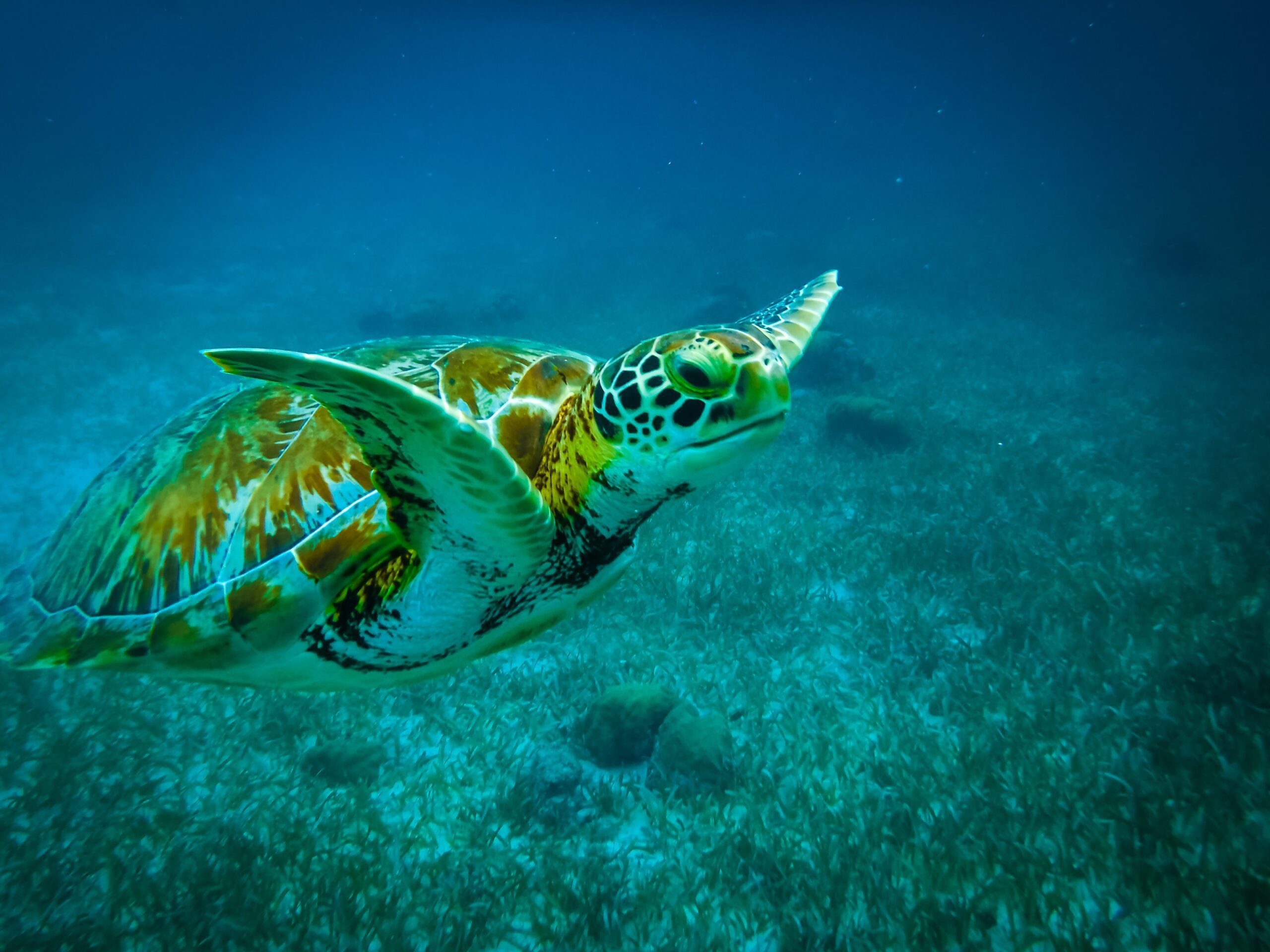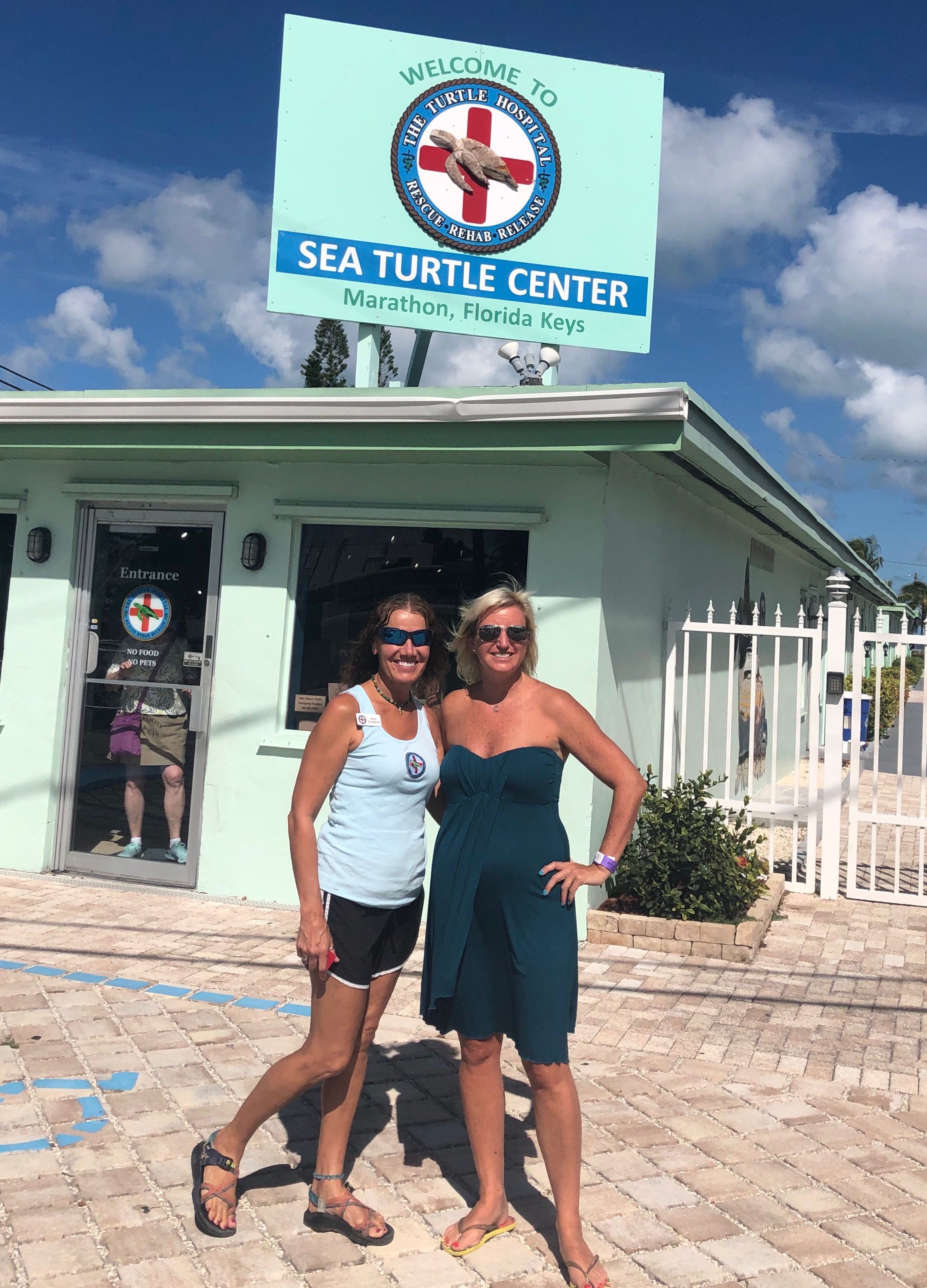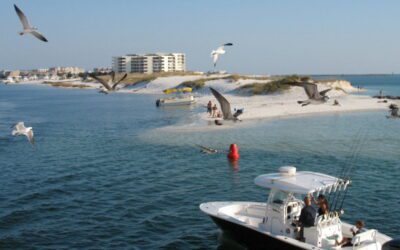Last updated on November 19th, 2023
Florida’s Turtle Hospital rescues hundreds of turtles every year
by Carolyn Ray, Editor, JourneyWoman
It’s hard to imagine that someone would put a three-foot long spear through a turtle, but that’s exactly what happened to a 150-pound green sea turtle aptly named Splinter. Found by a boater, Splinter was transported to the Turtle Hospital in Marathon, Florida where a veterinarian performed emergency surgery to remove it. When I heard this story, I had to visit this miraculous place, which is just north of Key West at MileMarker 48.5.
Florida’s Turtle Hospital is the first veterinary hospital for turtles in the world, with 2,000 rescued turtles since it was founded. The hospital helps five kinds of turtles: Loggerhead, Green Sea Turtles, Leatherbacks, Kemp’s Ridley (or Ghost Turtle) and Hawksbill.
As a Floridian, I’ve always been enamoured with these majestic creatures. I’ve seen loggerhead turtles swimming in the ocean and helped clear a path for baby turtles in Costa Rica. These are magic moments. But why do we love turtles so much? It is how they glide effortlessly through the water? Why does just thinking of little baby turtles bring tears to my eyes?
 Boat strikes, pollution and debris affect turtles
Boat strikes, pollution and debris affect turtles
Bette Zirkelbach, General Manager of the Turtle Hospital, admires her patients for their resilience and wisdom, noting that they are the ‘ancient mariners’ of the sea. For years, turtles have been on the endangered species list, and after my visit to the world-renowned Turtle Hospital, I’m not convinced we’re making as much progress as we should. We are not being kind to these ancient mariners. Boat strikes, water pollution and marine debris (aka garbage) are all having a dramatic effect on turtles.
Most of them are returned to the wild, but there are several permanent residents of the hospital, with some missing flippers (from shark attacks, entangled fishing lines) and others suffering from a condition called ‘bubble butt’. What’s a ‘bubble butt’, you may ask? Turtle shells are made of keratin, just like our fingernails, which is flexible and bendable. Many turtles in the hospital are victims of boat strikes. Just like a human skeleton, when a turtle is hit by a boat, its shell and organs are pushed up. The name Bubble Butt came from a green sea turtle rescued in 1989 by the Turtle Hospital.
When a turtle’s shell is pushed up, air gets caught underneath. A floating turtle is not a good thing. Not only is it vulnerable to prey like sharks, it also can’t dive for food, so can starve to death. At the Turtle Hospital, weights are put on turtles’ backs so they can go underwater. But of course, they can’t be returned to the wild this way.
Another problem is marine debris, or garbage. To a turtle, a plastic bag looks like a jellyfish (aka food). Plastic bags are caught in their digestive system, which creates ‘impaction’ and also gives them gas so that they float. When the turtles are rescued, they are given Metamucil, Beano and antibiotics to force the contents of their stomachs out. This can take months, but eventually they recuperate.
Like humans, toxic chemicals, fertilizer and agricultural runoff are giving turtles tumours. The chemicals weaken their immune system and create internal and external fibropapilloma tumors that have to be removed through surgery. This usually requires a one-year stay, but thankfully, most turtles are returned to the wild.
What you do to help turtles
If you see a sea turtle in distress, call the local fish and wildlife authorities or the Turtle Hospital. The hospital will even let you name the rescued turtle as a sign of thanks! And if you live too far away? You can support the Turtle Hospital by becoming a member. And, of course, visit! There are 90-minute tours several times a day, starting at 9 am. Registering in advance is recommended: www.turtlehospital.org.
Not only did Bette share stories about the turtles, she also shared some great advice for our Journeywoman community from her own experience: “no matter where you are, put all your energy into it…be open to everything”, and “follow your heart”!
There is hope for these turtles: Splinter was returned to the wild in an emotional release ceremony with the community in attendance. You can see a video of the release here. I have to admit, it made me a little misty-eyed. What about you?
Special thanks to The Turtle Hospital and Key West Tourism for inviting us to visit!
More about the Florida Keys
Destin, Florida, an Undiscovered Gem on the “Emerald Coast”
Located on Florida’s west coast, Destin has evolved from a sleepy fishing village to a safe, accessible place for older women to enjoy white sand beaches and an active lifestyle.
The Hotlist: 12 of the Coolest Small Group Tours for Women in 2024 From our Women’s Travel Directory
From Cuba to Mongolia, these unique small group tours from our Women’s Travel Directory will connect you with people, places and wildlife.
Best Airports (and Hotels) for Layovers, Recommended by Solo Travellers
Women share their best airports for layovers, from Amsterdam to Vancouver, including food options, hotels, amenities and testing options.



 Boat strikes, pollution and debris affect turtles
Boat strikes, pollution and debris affect turtles 


0 Comments
We always strive to use real photos from our own adventures, provided by the guest writer or from our personal travels. However, in some cases, due to photo quality, we must use stock photography. If you have any questions about the photography please let us know.
Disclaimer: We are so happy that you are checking out this page right now! We only recommend things that are suggested by our community, or through our own experience, that we believe will be helpful and practical for you. Some of our pages contain links, which means we’re part of an affiliate program for the product being mentioned. Should you decide to purchase a product using a link from on our site, JourneyWoman may earn a small commission from the retailer, which helps us maintain our beautiful website. JourneyWoman is an Amazon Associate and earns from qualifying purchases. Thank you!
We want to hear what you think about this article, and we welcome any updates or changes to improve it. You can comment below, or send an email to us at [email protected].